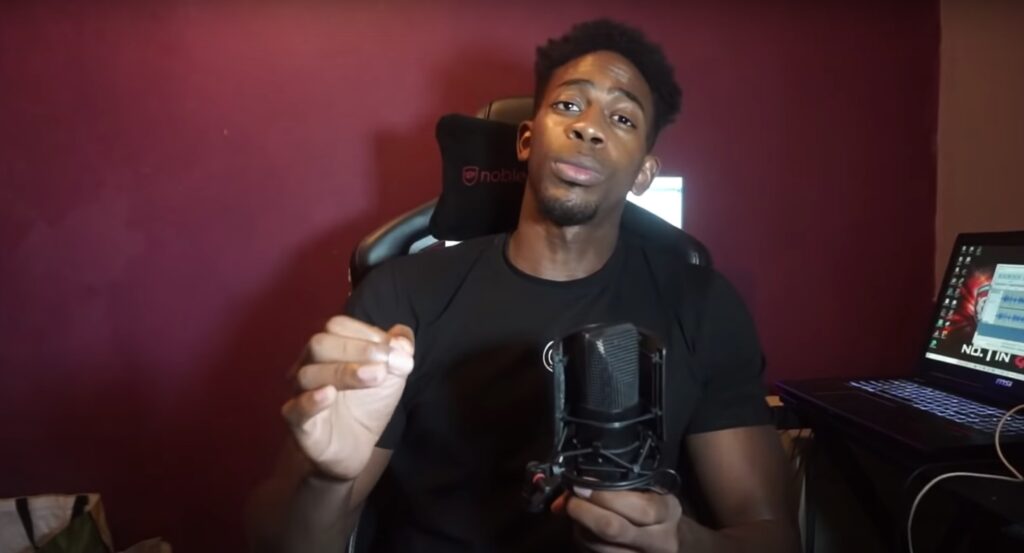 Early July, Grammy award-winning musician Maria Schneider teamed up with Virgin Islands-based Pirate Monitor Ltd in a class action lawsuit targeting YouTube.
Early July, Grammy award-winning musician Maria Schneider teamed up with Virgin Islands-based Pirate Monitor Ltd in a class action lawsuit targeting YouTube.
Filed in a California court, the complaint centered on YouTube’s alleged copyright failures, including the company’s refusal to allow “ordinary creators” to have access to its copyright management tools known as Content ID.
“Denied Any Meaningful Opportunity” to Prevent Infringement
Painting YouTube as a platform designed from the ground up to attract and monetize piracy, the action contained a barrage of additional accusations, including that the mere existence of Content ID, through which creators can be compensated for otherwise infringing uploads, means that most infringement is shielded from YouTube’s repeat infringer policy.
Schneider informed the court that a number of her songs had been posted to YouTube without her permission, noting that she had twice been refused access to Content ID and the “automatic and preemptive blocking” mechanisms that are available to larger rightsholders.
For its part, Pirate Monitor Ltd claimed that its content, including the movie Immigrants – Jóska menni Amerika , was illegally uploaded to YouTube hundreds of times. The company said that while YouTube responded to takedown notices, they often took too long to process. Access to YouTube’s Content ID system was denied, Pirate Monitor added.
YouTube Responds to Complaint, Files Counterclaims
Much like the beginning of the complaint itself, YouTube and owner Google’s response begins in familiar fashion. The company denies that it encourages infringement, instead noting that it goes “far above and beyond” its legal obligations when assisting copyright holders to protect their rights, including by investing more than $100m in Content ID.
Of course, this complaint largely revolves around YouTube denying the plaintiffs’ access to Content ID but to that allegation, the company has a set of simple and apparently devastating response points.
Firstly, Pirate Monitor Ltd cannot be trusted since it has already engaged in fraudulent behavior in respect of Content ID. As for Schneider, not only is she suing YouTube over copyrighted music that she and her agents have already granted YouTube a license to use, her own agent has also used Content ID to generate revenue from those works on her behalf.
Pirate Monitor Uploaded its Own Content Using Bogus Accounts
While the claim that Schneider licensed her content to YouTube and made money through Content ID is surprising, that pales into insignificance when compared to the allegations against Pirate Monitor Ltd.
During the fall of 2019, YouTube says that Pirate Monitor through its authorized agents created a series of accounts on YouTube using bogus account registration information to hide the relationship between the account creators and Pirate Monitor.
These accounts were subsequently used to upload “hundreds of videos” to YouTube. These included clips from exactly the same works that Pirate Monitor accuses YouTube of infringing in its complaint – the films Csak szex és más semi and Zimmer Feri .
“Each time these videos were uploaded, Pirate Monitor was representing and warranting that the video did not infringe anyone’s copyrights, and it expressly granted YouTube a license to display, reproduce, and otherwise use the videos in connection with the service. Pirate Monitor also represented that it owned or had the rights to upload and license the material contained in the videos,” YouTube’s answer reads.
Shortly after, YouTube notes, Pirate Monitor followed up by sending “hundreds” of DMCA takedown notices targeting many of the videos it had uploaded through the disguised accounts.
“In those notices, Pirate Monitor represented that the videos that were the subject of the notices — videos that it had uploaded — infringed its copyrights or the copyrights of a party whom Pirate Monitor was authorized to represent. YouTube processed the substantial volume of DMCA takedown requests and removed the videos,” YouTube adds.
YouTube Backs Pirate Monitor Into a Corner
As noted in YouTube’s answer, Pirate Monitor’s representations over the status of these videos cannot be correct in both instances. At the point of upload the company told YouTube that it had the right to upload the videos since they infringed nobody’s rights. If those declarations were untrue, the company breached the ToS agreement and “perpetrated a fraud on YouTube” by uploading infringing content.
On the other hand, if it did have permission to upload the content, then Pirate Monitor knowingly made false statements to YouTube when it submitted DMCA takedown notices clearly stating that the uploads were infringing. The big question, then, is why Pirate Monitor engaged in this alleged conduct at all.
YouTube: Pirate Monitor Wanted Access to Content ID
According to YouTube, Pirate Monitor had previously applied for access to the Content ID program. However, the company was denied on the basis that it was required to demonstrate a valid need and have a “track record” of properly using the DMCA takedown process.
YouTube believes that since Pirate Monitor was lacking these qualities, it cooked up a scheme to convince the video platform that it fulfilled the criteria.
“Pirate Monitor believed that it could demonstrate both the need for access, and a track record of valid DMCA takedown requests, by surreptitiously uploading a substantial volume of content through accounts seemingly unconnected to it, and then sending DMCA takedown requests for that same content,” YouTube says.
“Instead of showing that it could properly use YouTube’s tools, Pirate Monitor’s deceptive and unlawful tactics established that it could not be trusted, and that YouTube was right in rejecting its request for access.”
YouTube’s Counterclaims
As a result of Pirate Monitor’s actions, YouTube says that there has been a breach of contract. The company and its agents failed to provide accurate information during the account creation process and seems to have uploaded videos to YouTube that infringed third-party copyrights. All of this cost YouTube time and money, including investigating and processing Pirate Monitor’s claims that the content was infringing.
Furthermore, YouTube notes that in its agreement with Pirate Monitor, the company is obliged to “indemnify YouTube for claims rising out of or relating to its use of the YouTube service.
“In seeking defense costs and any potential liability in this action as damages for Pirate Monitor’s contract breaches, YouTube expressly preserves its separate entitlement to contractual indemnity and will amend its counterclaims to add a claim for that indemnity if Pirate Monitor refuses to honor its indemnity obligation,” the video platform writes.
YouTube further alleges fraud in respect of more than a dozen accounts Pirate Monitor created for the purposes of uploading around 2,000 videos. Taking the statements in the subsequent DMCA takedown notices sent by the company as accurate, YouTube says that Pirate Monitor agreed not to upload infringing content but did anyway, each time declaring that it had the necessary rights to the content being uploaded.
As an alternative, YouTube offers similar counterclaims in the event that Pirate Monitor actually had permission to upload the videos but abused the DMCA by issuing fraudulent takedown notices instead.
Request for Injunction and Damages
In addition to requesting damages to compensate for the harm caused by Pirate Monitor’s actions, YouTube demands a punitive damages award to compensate for its “fraudulent conduct”.
The video platform also seeks an injunction barring Pirate Monitor and its agents from submitting any further DMCA notices that wrongfully claim that material on the YouTube service infringes copyrights held (or are claimed to be held) by Pirate Monitor or anyone it claims to represent.
YouTube and Google’s Answer and Counterclaims can be found here (pdf)
From: TF , for the latest news on copyright battles, piracy and more.
 chevron_right
chevron_right










